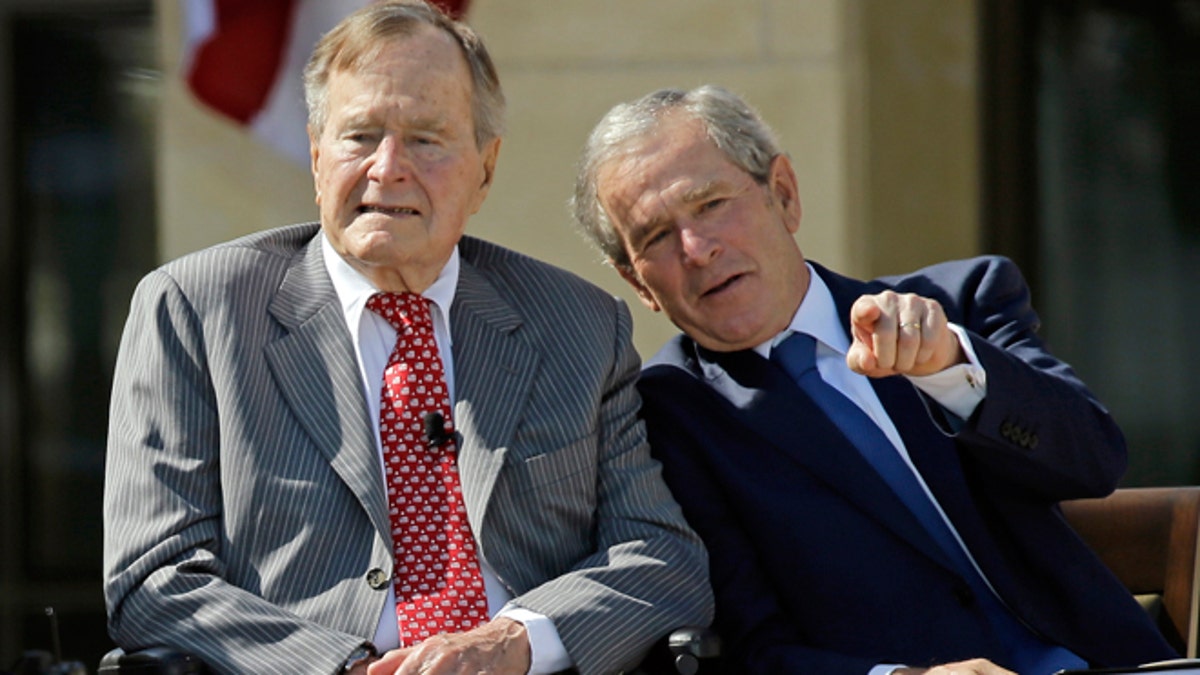
April 25, 2013: Former President George W. Bush talks with his father, former President George H. W. Bush, left, during the dedication of the George W. Bush Presidential Center in Dallas. (AP)
DALLAS – George H.W. Bush seriously considered not running for re-election in 1992 even though he loved his job, according to a new book written by former President George W. Bush.
A complimentary account of his dad's presidency and glimpse into his personal life, "41: A Portrait of my Father," is scheduled to hit shelves on Tuesday, when the two will make a rare joint appearance at the elder Bush's presidential library in College Station, Texas. The Associated Press purchased an advance copy.
The book, which Bush kept under wraps until last summer, examines his father's decision to launch the first war in Iraq in 1991, his early failures in politics and his stinging defeat to Bill Clinton in 1992. It also relates personal anecdotes, including how the elder Bush struggled with the death of his daughter, Robin, of leukemia, and how he attempted to set up his namesake in the 1960s with Trisha Nixon, former President Richard Nixon's daughter.
George H.W. Bush, now 90, pondered not running for a second term because he felt his role was creating undue scrutiny of his son, Neil Bush, who was facing a federal lawsuit, according to the book.
"It killed him to see Neil singled out because he was the President's son," Bush wrote.
The elder Bush also hesitated because he had developed an irregular heartbeat and was exhausted, Bush added.
Although other biographies have described the relationship between father and son as sometimes strained, Bush, 68, describes their "worst argument" as arising after he drove home drunk from a tennis match, a decision his father met with a disapproving silence.
The author does not delve deeply into his own turn in the White House but makes clear that he considered his father a key adviser. He also disputes the assertion that he went to war in Iraq because of the conflict during his father's presidency.
"I was not trying `to finish what my father had begun,' as some have suggested," he wrote.
The book also includes a portrait of the elder Bush created by his son as part of his collection of oil paintings of world leaders.
In the author's note, Bush says his account is not objective but rather "a love story -- a personal portrait of the extraordinary man who I am blessed to call my dad."











































